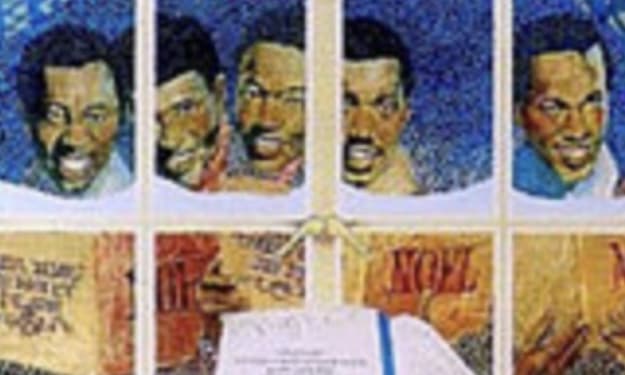‘Here we come a wassailing’s’ dark origin during Christmas
This popular holiday song was rooted in threats of violence.

Christmas traditions as we know them today have evolved over the decades and sometimes the celebration was not so merry and bright. There was a time when the December festivities for Roman Bacchanalia, (or Saturnalia,)and the Yule Feast of the Norse countries were filled with “ lascivious ness and debauchery”. There was drunkenness, orgies and excessive feasting for weeks. Christians during that time wanted to hinder the activities they thought to be immoral by celebrating the birth of Christ on December 25. Their efforts backfired however when a number of people combined the two and celebrated Christmas in the same manner as the other mid winter observances. Everyone put their own spin on the holiday and inebriated young men found a way to rob the rich and line their own pockets.
“Here we come a-wassailing among the leaves so green;
Here we come a-wandering, so fair to be seen.
Love and joy come to you, and to you our wassail, too.
And God bless you and send you a Happy New Year
And God send you a Happy New Year”
The “Wassailing song” used to be popular when Christmas carrolers went door to door. I remember singing this song in elementary school and I assumed that wassailing was on old world term for caroling. There is so much more to this, however, than I realized. The song’s origins include a dark side of Christmas, bullying and threats.
“We are not daily beggars that beg from door to door;
But we are neighbours' children whom you have seen before.
Love and joy come to you and to you our wassail too.
And God bless you and send you a happy New Year
And God send you a Happy New Year”
The Wassail song comes from a very strange period of time when the December 25th holiday and giving of presents was not about love and family as it is for most today. Gift-giving during Christmas is said to have originated from one of two places. The first is the example of the Magi who brought gold, Frankense and myrrh to the Christ Child. The second is because Saint Nicholas gave gifts to the poor on Christmas Day. In early modern Europe, however, the giving of gifts had its roots in a third practice which was Christmas begging. At that time, during the holiday seasons, there were groups of drunken young men, who often were rowdy, and would "wassail" from home to home demanding handouts. Stephen Nissenbaum, author of "The Battle for Christmas." says that during this dispensation, Christmastime involved an exchange between the social classes.
This is confirmed by the story of the song “ We wish you a merry Christmas” when the poor sang at the doors of the rich the second and third lines of the song “ Oh give us some figgy pudding and “We won’t leave until we get some.” Caroling and Wassailing seemed to be methods for the poor to extract food and money from the wealthy.
“We have a little purse made of ratching leather skin;
We want a little sixpence to line it well within.
Love and joy come to you and to you our wassail too
And God bleed you and give you a happy New Year
And God give you a Happy New Year”
God bless the master of this house, likewise the mistress, too;
And all the little children that round the table go. “ Refrain
The roughneck young men who were quite drunk and noisy would knock on the doors of those who were deemed more fortunate. They expected and often received handout for their singing. Think of it as the Christmas version of Trick or Treat where the premise is “Givr me a treat or I will play a trick on you.” It’s actually blackmail where your piece and serenity comes at the price of listening to drunken men singing and rewarding them with money.
Wassailing was also done on 12th Night or Epiphany which is 12 days after Christmas. This celebrates the wisemen finding the Christ Child. The drink of choice the wassaikers for both events was usually spiced wine and mulled beer. A good lesson to learn from this is that you cannot force your way of celebrating on others because people will make their own choices.
About the Creator
Cheryl E Preston
Cheryl is a widow who enjoys writing about current events, soap spoilers and baby boomer nostalgia. Tips are greatly appreciated.






Comments
There are no comments for this story
Be the first to respond and start the conversation.